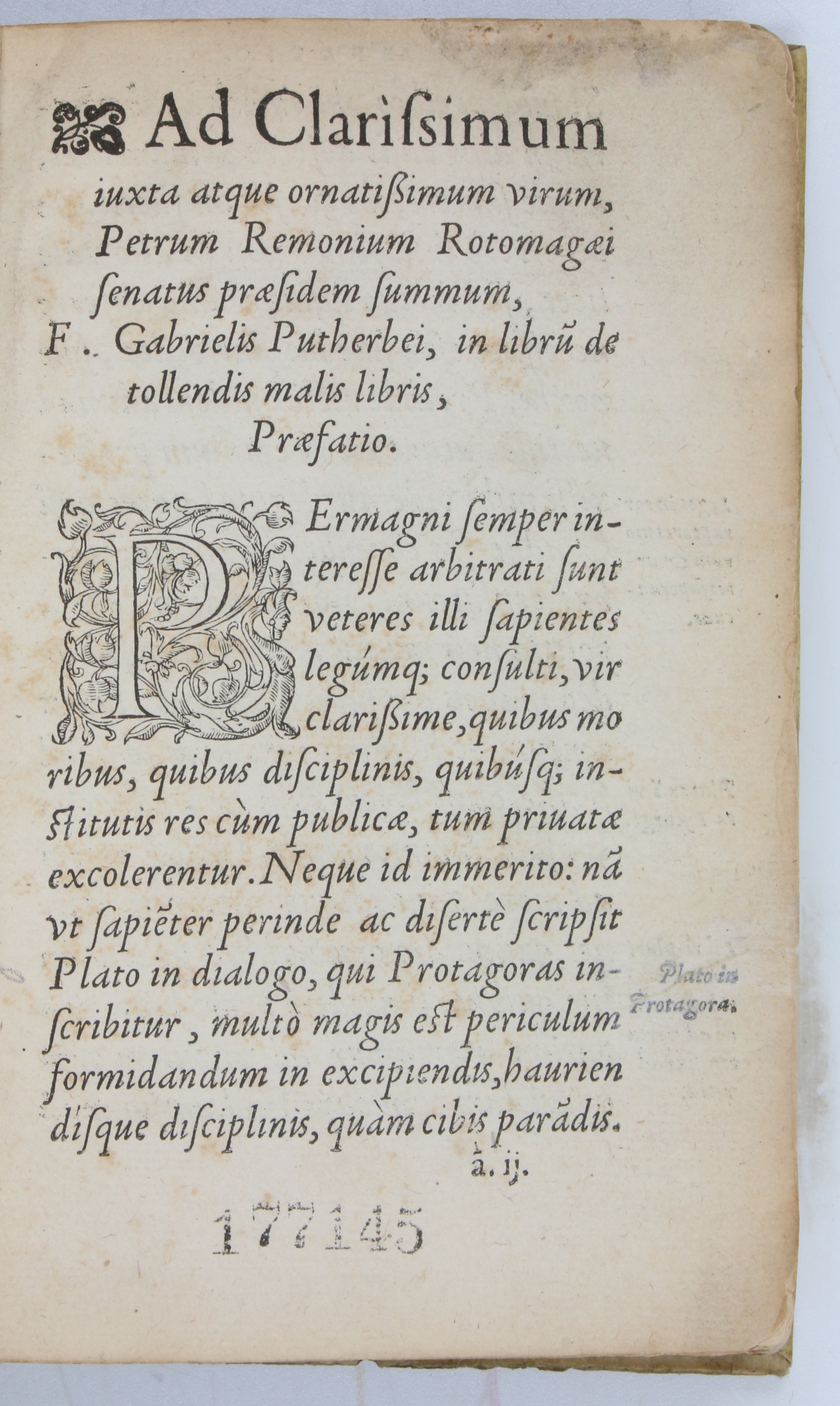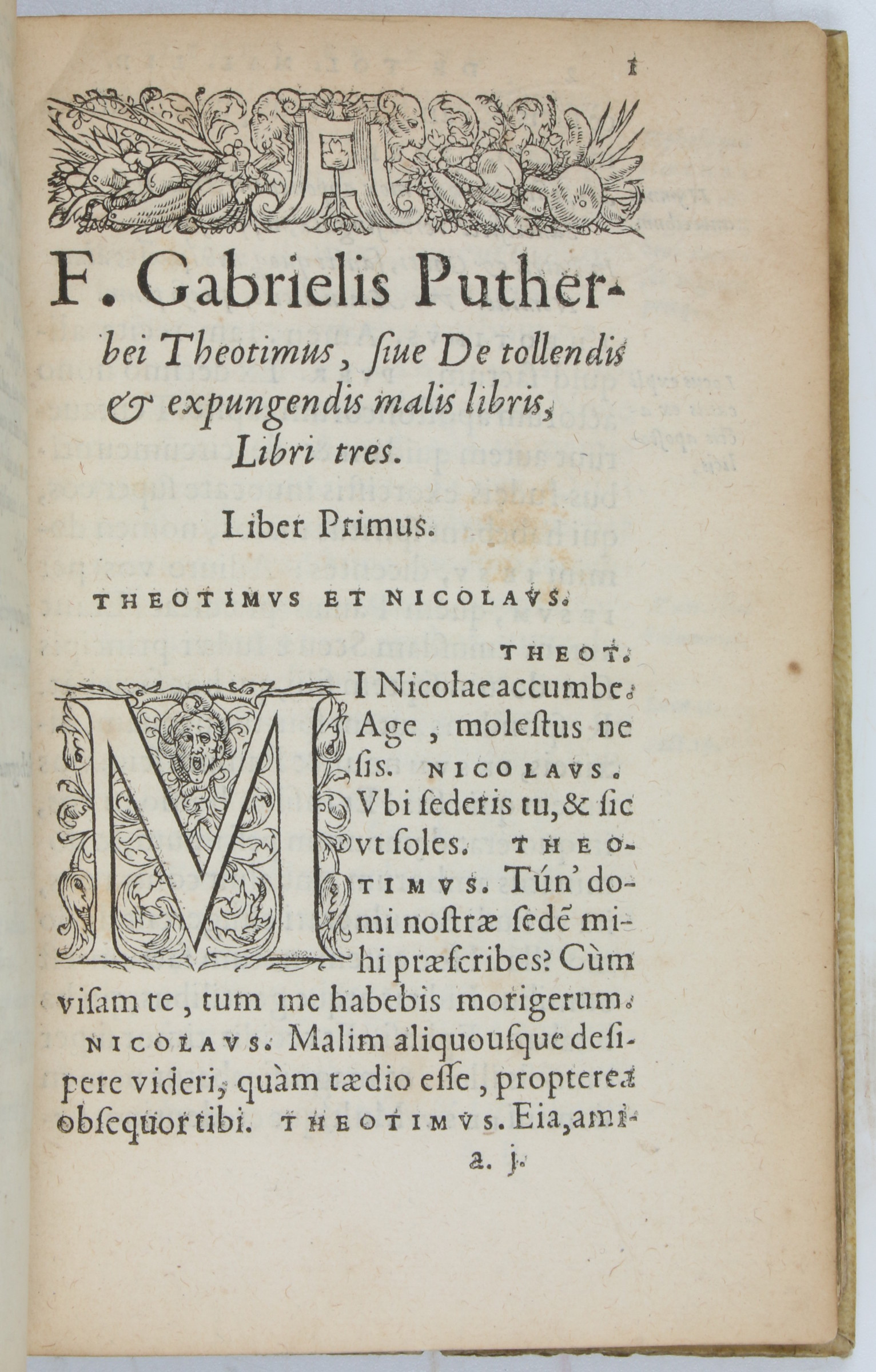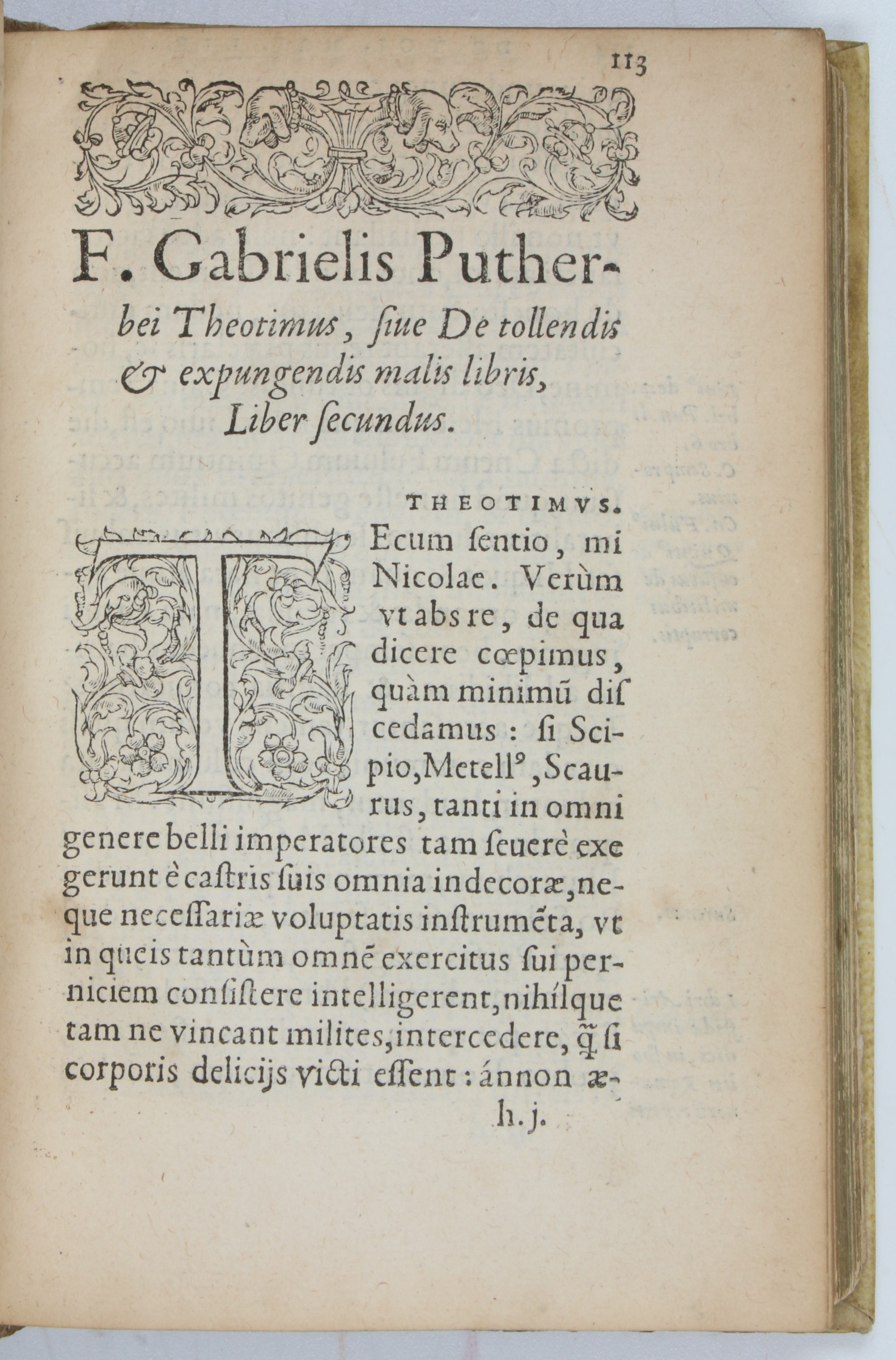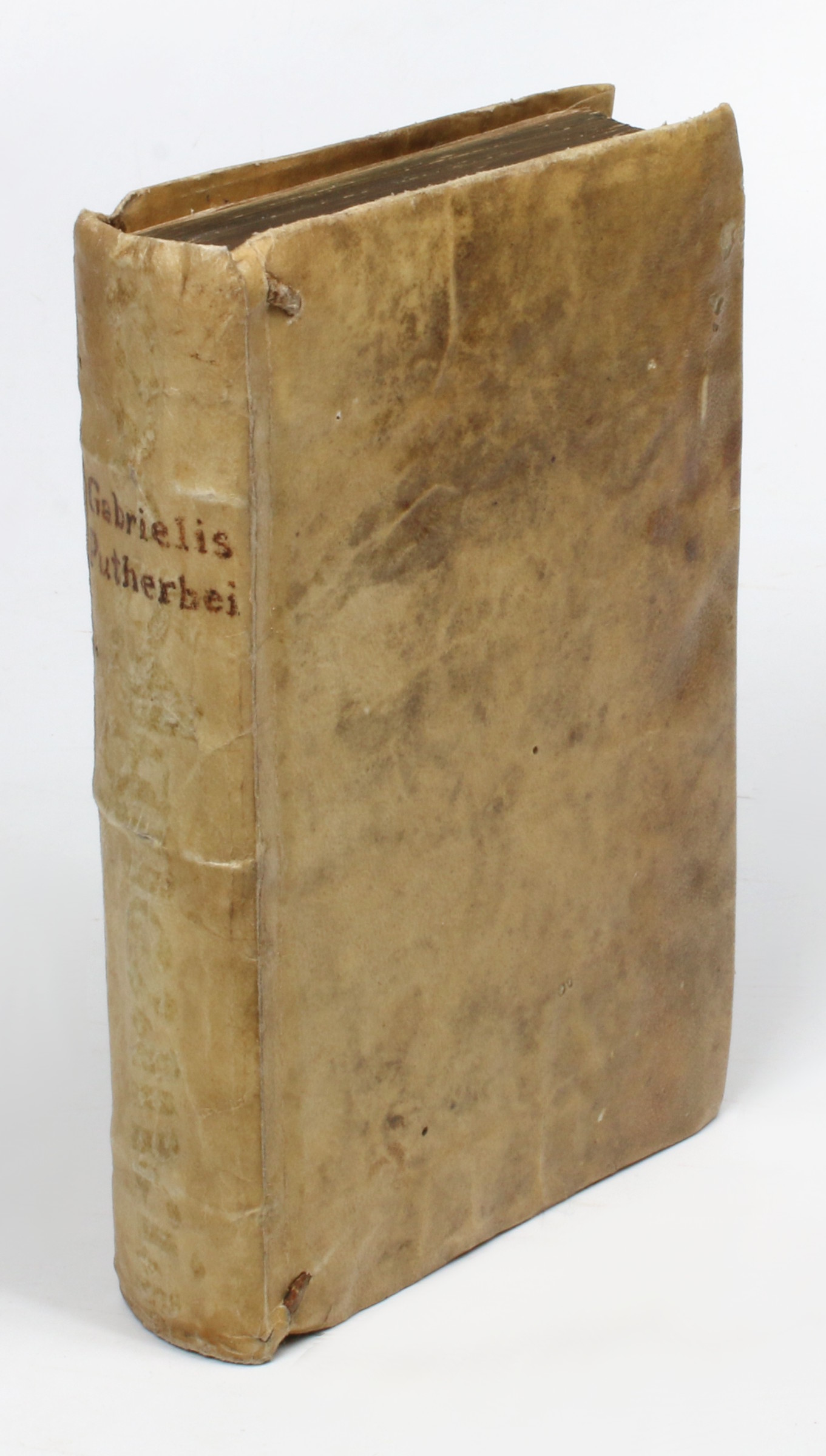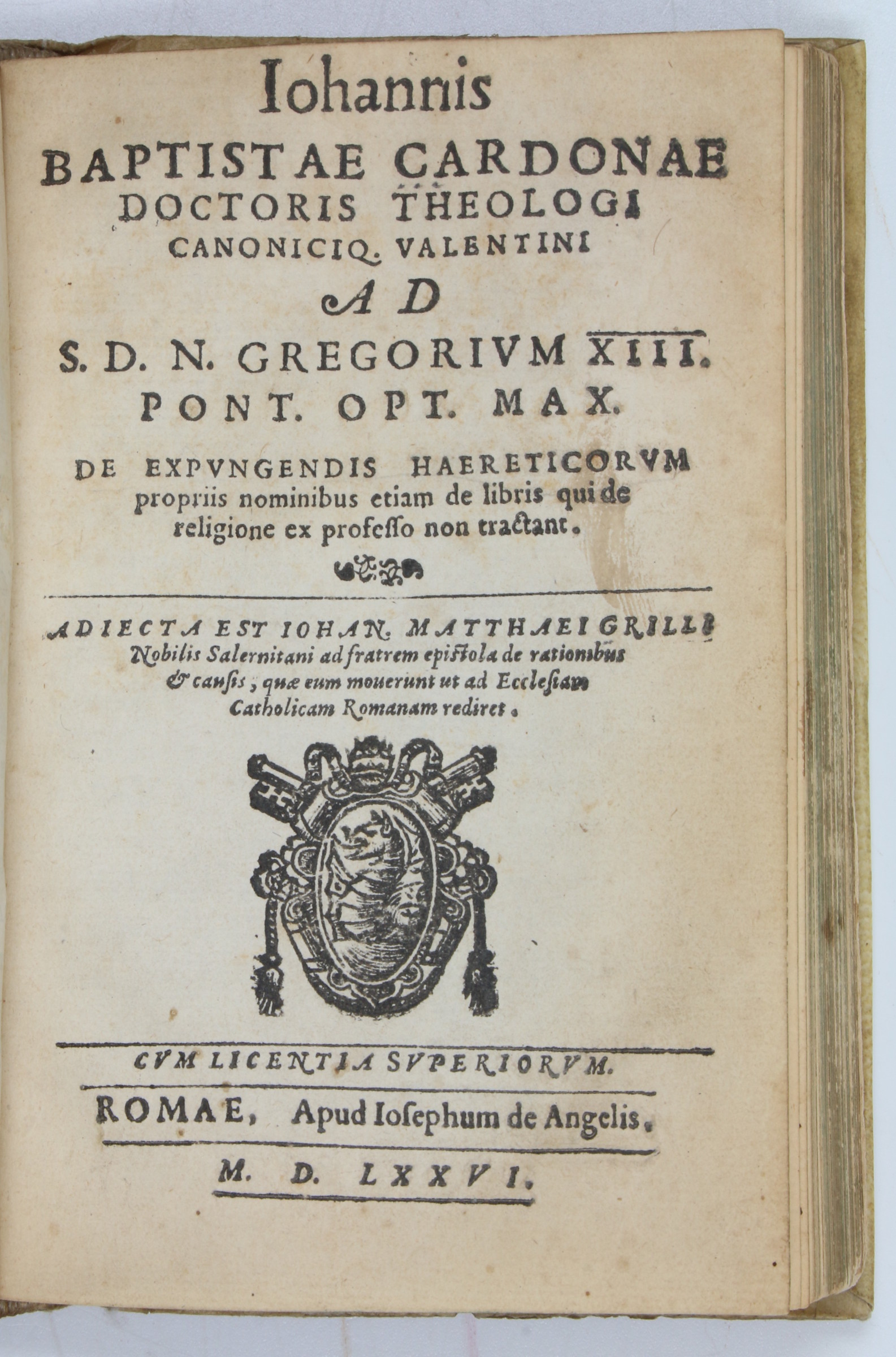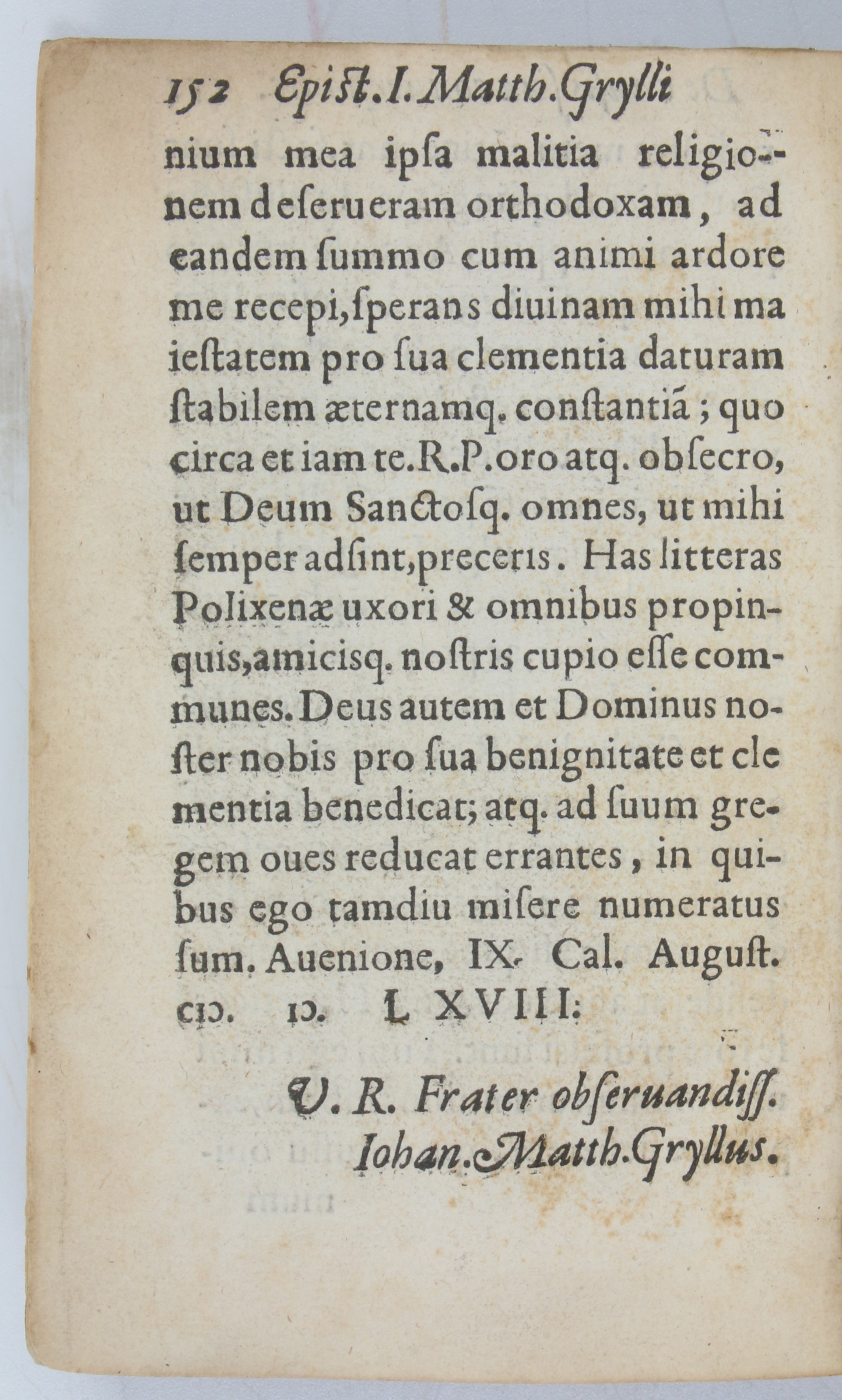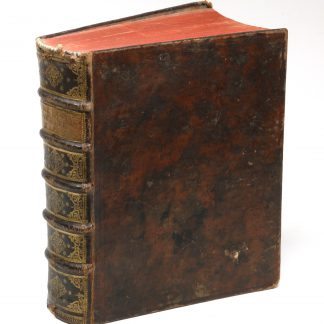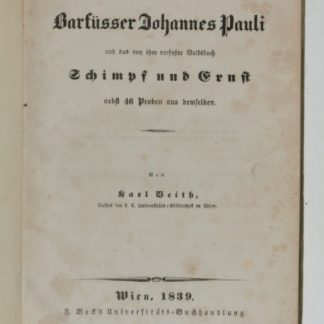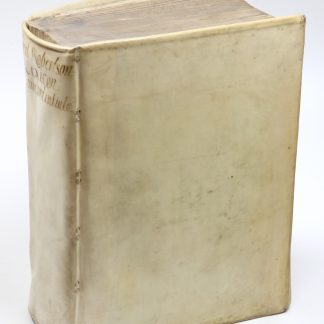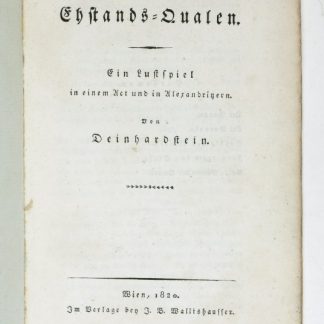Catholic censorship of medieval and Renaissance Poetry
Theotimus, sive de Tollendis et expungendis malis libris [...].
8vo. (48), 283, (5) pp. (including errata leaf and priviledge at end).
Bound with (II): Cardona, Juan Bautista. De expungendis haereticorum propriis nominibus etiam de libris qui de religione ex professo non tractant. Rome, Giuseppe de Angelis, 1576. 152 pp. With woodcut printer's device on title-page. Contemporary limp vellum with ms. spine title.
€ 3.500,00
First edition of this notorious 16th century defence of censorship, couched as a dialogue between Theotimus and Nicolaus, which includes biting attacks on authors who were thought to threaten public morals - notably Rabelais. Other widely-received works of a particularly corrupting character that Dupuyherbault (ca. 1490-1566) singles out for criticism include the Arthurian literary cycle, Merlin's prophecies (highly esteemed in the Middle Ages), Ogier the Dane, and especially the 13th century Roman de la Rose: indeed, the author of this work (he writes) must have suffered the fate of Judas, unless he repented of his sins (p. 131). Dupuyherbault is also one of the earliest scholars to note that catalogues of banned books are prone to being exploited as lists of recommended reading by persons who otherwise would have remained ignorant of their existence (p. 238).
Very rare: a single copy in auction records since 1963. A German translation appeared as early as 1581.
II: "A curious little work" (Reusch) in which Cardona, who was himself involved with the Roman Congregation's expurgation efforts, provides an elaborate argument for striking also the names of the heretic authors from their expurged books. The Spaniard J. B. Cardona (1511-89), bishop of Tortosa, suggests that this would bring greater honour to Christ while denying the heretic the honour he craves, whereas preserving their names would be tantamount to giving credit where none is due. The only cases in which the heretic authors' names are to be kept are those in which they are mentioned by pious or learned men with the purpose of refuting or slighting them. "A member of the Index Congregation, Cardinal Gabriel Paleotto, agreed with Cardona and prompted him to have his treatise printed. Gregory XIII accepted the dedication of the work and issued the relevant decree 'for the said reasons as well as for others'" (cf. Reusch I, 454). Rare; a single copy in auction records internationally.
Rather light browning throughout the volume, but an attractive and well-preserved book.
I: BM-STC French 145. Adams D 1154. Reusch I, 284.
II: BM-STC Italian 149. Edit 16, CNCE 9486. Reusch I, 453f. OCLC 872432320. Not in Adams.


